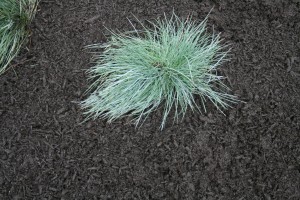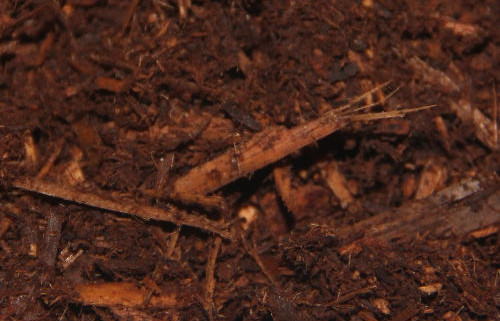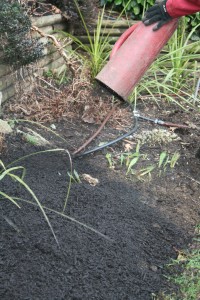Mulch – A Gardeners Best Friend
A QUICK PRIMER ON MULCH – Gardener’s Best Friend
Source: Master Gardeners Association of BC
“Plants feed from the soil, and mulch develops the kind of soil that makes healthy plants. When we force our plants to rely on fertilizer rather than healthy soil for food, they become stressed from forced growing, incorrect balance of nutrients, and drought at the air-soil barrier. Relying on fertilizer is like relying on candy for nutrition: a short-term buzz, but a long-term problem.
There are four aspects in gardening. Mulch addresses the improvement of all of them.
1. The SOIL
- Improves structure (i.e. balance of sand, organic materials, bio-available minerals)
- Controls moisture levels. Studies show moisture retention at 6, 18, and 36 inches is higher with mulch than without. Highest moisture is at 6 inches, where most of feeding and delicate roots are found.

- Improves drainage as well as movement of water
- Prevents erosion and compaction of soil
- Moderates temperature
2. The PLANTS
- Provides nutrients as it slowly composts, giving your plants a season-long feeding.
3. The LANDSCAPE
- Directly suppresses pathogens and pests
- Enhances and feeds beneficial organisms
- Neutralizes pollutants (from studies on land reclamation in Washington State, and Stanley Park’s Lost Lagoon in Vancouver)
4. HUMANS
- Economic: recycles organic materials so it is less costly to maintain landscape, conserves water, decreases need for pesticides
- Aesthetic: provides a uniform, clean, tended look to your landscape
- Ease of application: throw it down, walk away
- Ease of weeding: mulch kills many weeds. The more vigorous ones that sometimes grow through it are easy to pull because they have little in the soil below. Weeds that propagate by root runnners move up into the mulch so are easily pulled out to their full length.”





